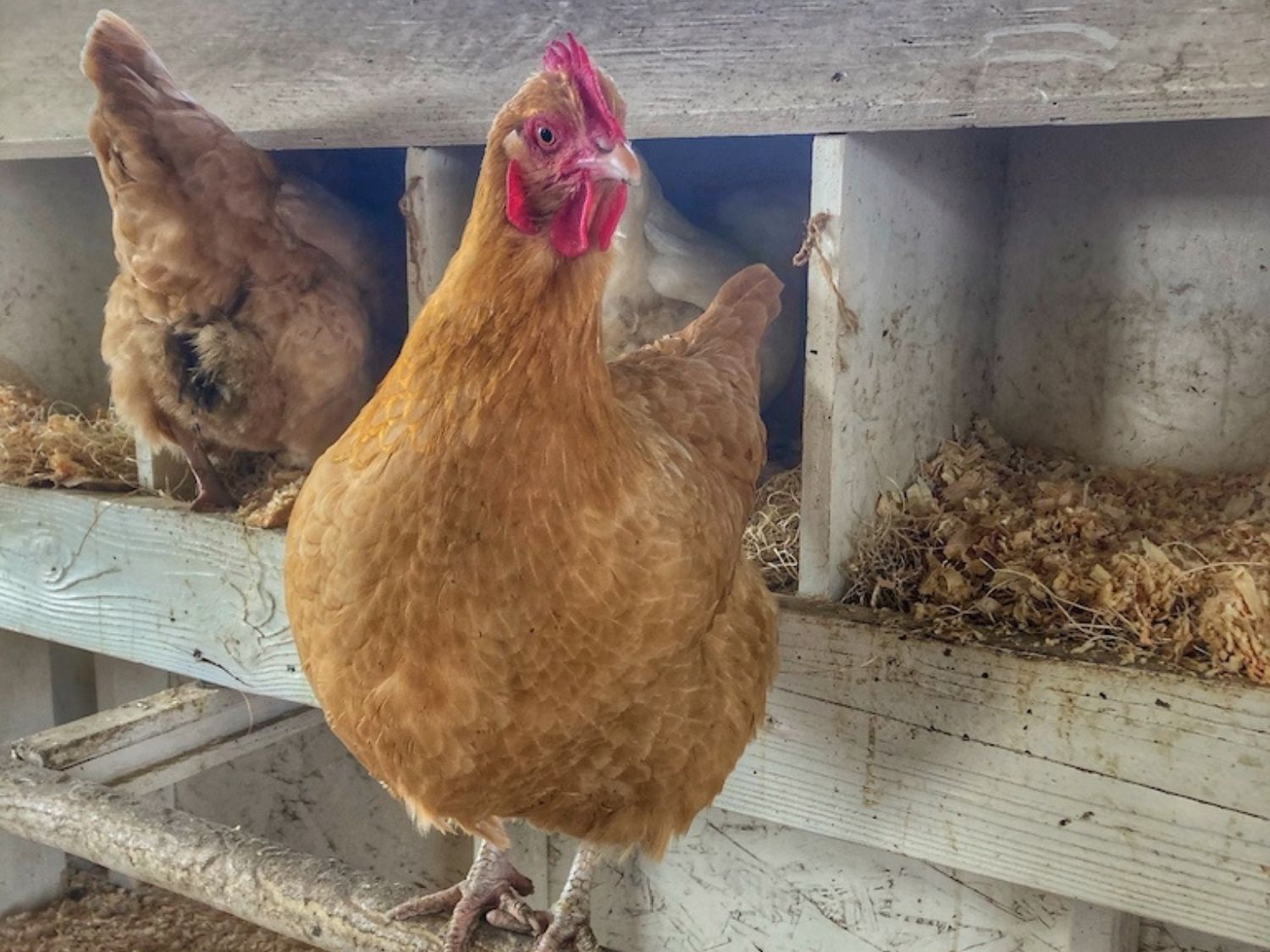Ensuring that chickens have an optimal sleeping environment is essential to successful chicken husbandry. To ensure that chickens have the best possible sleeping environment, it is important to follow best practices for chicken sleeping in nest boxes. These best practices include creating a comfortable and secure sleeping environment for the chickens, providing adequate ventilation and light, and regularly checking on the health and welfare of the chickens. By following these best practices, chicken farmers can ensure that their chickens have the best possible sleeping environment and can enjoy a healthy and productive life.
Benefits of Chickens Sleeping in Nest Box
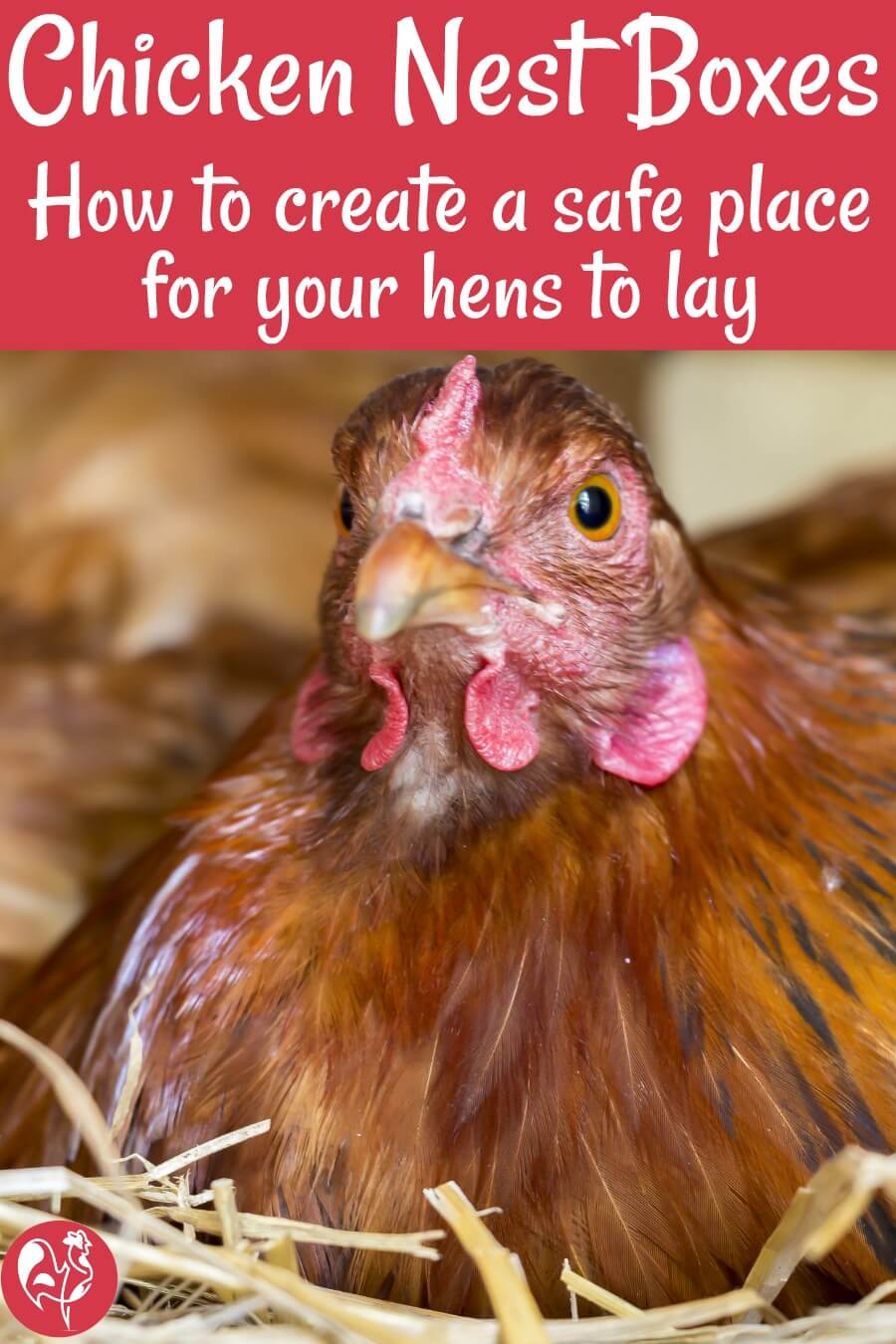
Improved Egg Production
Chickens that sleep in their nesting boxes are more likely to lay eggs in them. This is because they are more comfortable in the nest box and feel more secure. Chickens that are comfortable and secure will produce more eggs.
Reduced Stress Levels
Chickens that are provided with a comfortable and secure nesting box are less likely to suffer from stress. This is because they are able to rest and relax in their nest box, and not have to worry about being disturbed by predators or other stressors.
Increased Comfort
Providing chickens with a nest box gives them a safe and secure place to sleep. This creates a comfortable environment for them, which helps to reduce stress and encourages them to lay eggs. Additionally, chickens that sleep in a nest box are less likely to be disturbed by predators. This is especially important when it comes to do chickens sleep in nesting boxes.
Essential Considerations When Installing Nest Boxes
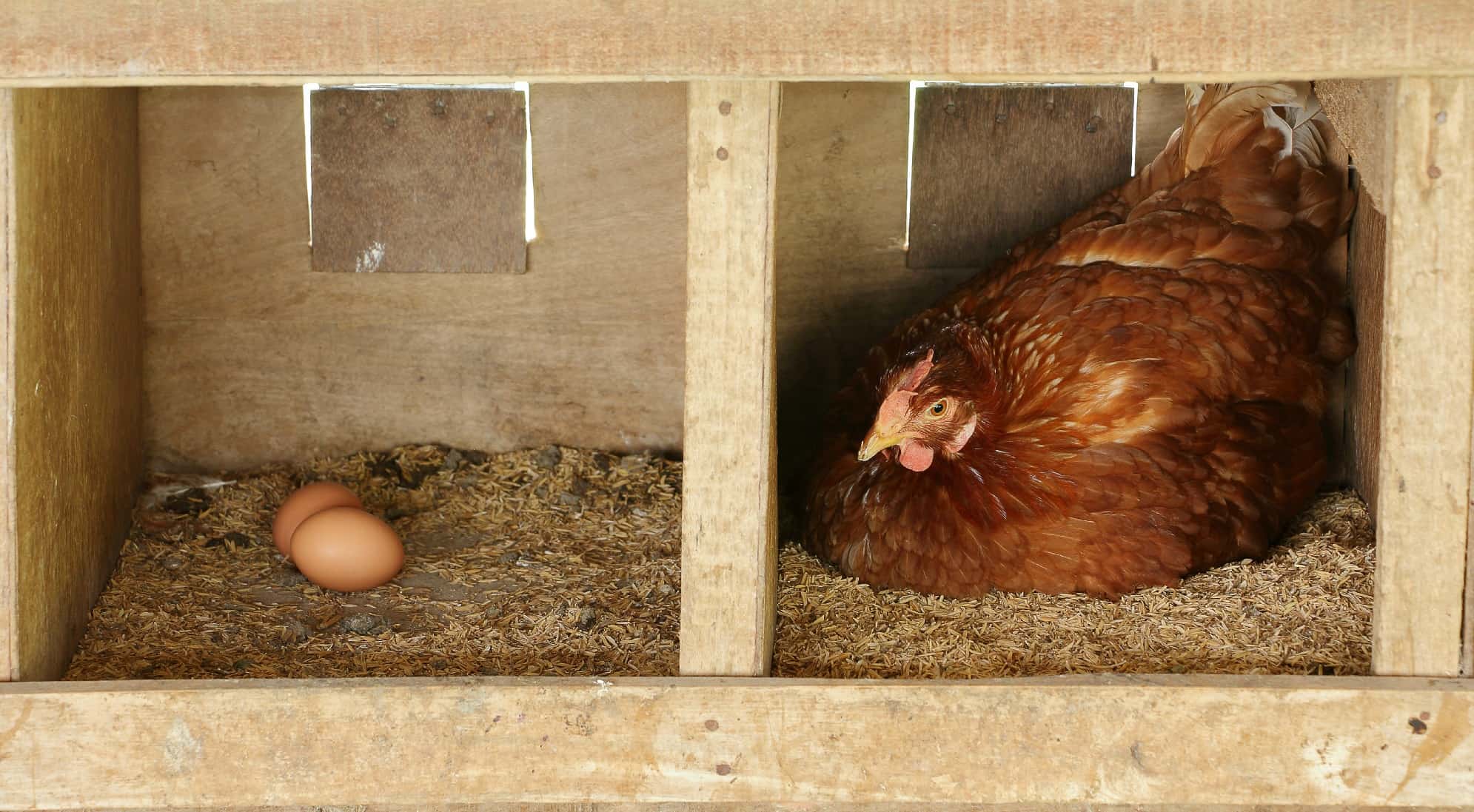
Location
The location of the nest boxes is an important factor in providing a comfortable place for chickens to sleep. Choose a place that is quiet and away from the hustle and bustle of the main chicken coop. It should also be away from predators and other animals that may want to bother the chickens.
Size
The size of the nest box should be large enough to accommodate the chickens comfortably and securely. The boxes should also be high enough so the chickens can easily access them.
Design
The design of the nest box should be such that the chickens can easily enter and exit the box. The perch should be high enough for the chickens to rest comfortably. Furthermore, the nest box should be covered with a lid to provide protection from the elements and predators, as well as insulation to keep the chickens warm during cold nights.
Ensuring optimal chicken sleeping in nest box is essential in providing a safe and healthy environment for your chickens. Taking into account these essential considerations when installing nest boxes, will help ensure your chickens are comfortable and secure while they sleep.
Potential Challenges with Nest Box Setup
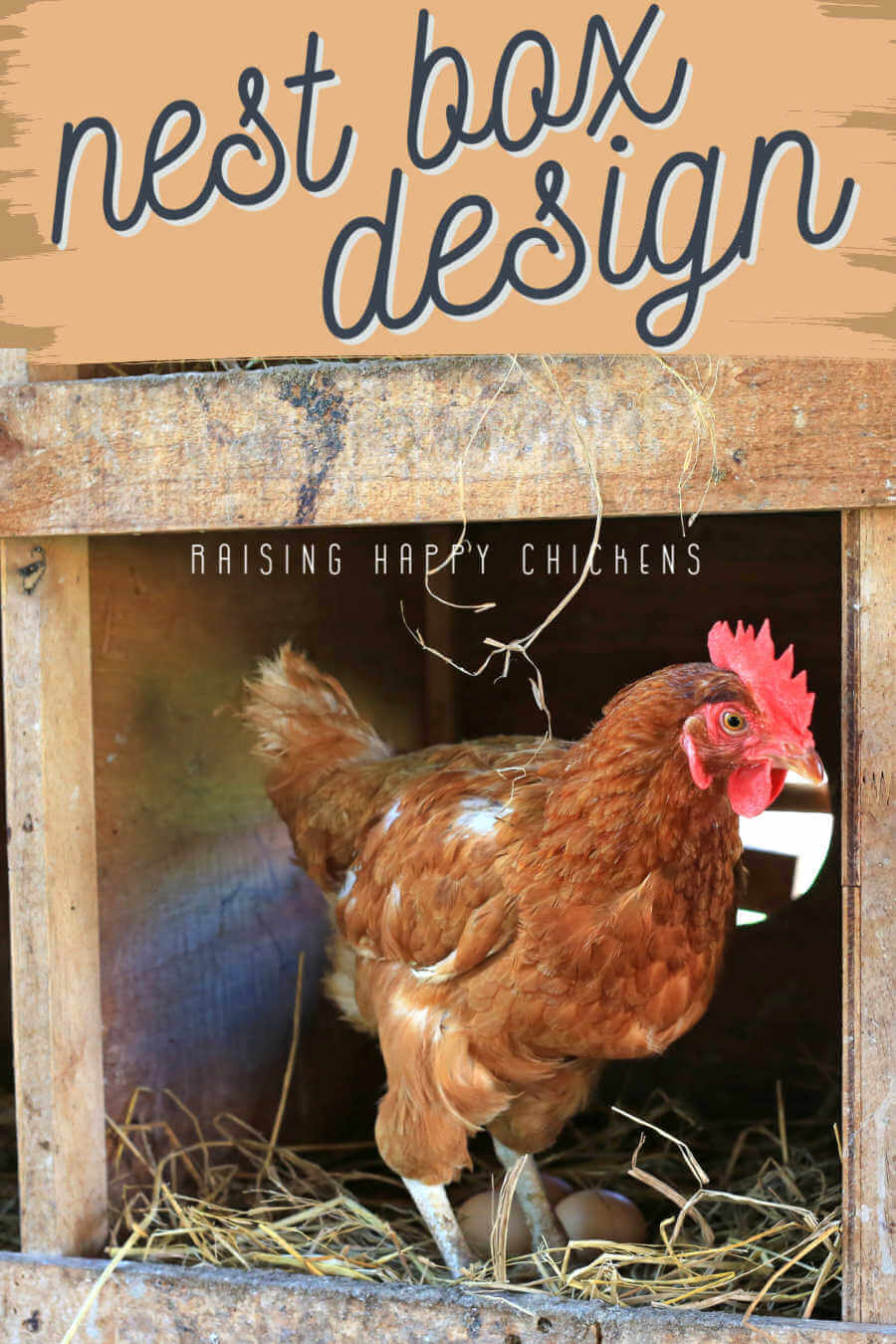
Too Many Chickens for Limited Nest Boxes
It is important to provide enough nest boxes for the number of chickens in the flock. If there are too many chickens and not enough boxes, the chickens can become stressed and the birds may not be able to find a place to sleep. This can lead to chickens sleeping in their nesting boxes and overcrowding.
Low Quality Nesting Boxes
Nest boxes should be of high quality and well-maintained. Poorly designed or low quality boxes can cause discomfort for the chickens and make it harder for them to rest. This can lead to chickens sleeping in their nesting boxes due to being unable to find a comfortable place to sleep.
Nest Boxes Placed Too High
Nest boxes should be placed at a height that is comfortable for the chickens. If the boxes are placed too high, the chickens may not be able to reach them, resulting in chickens sleeping in their nesting boxes instead.
Poorly Designed Boxes
Nest boxes should be designed properly to provide a comfortable sleeping environment for the chickens. Poorly designed boxes may not have enough space for the chickens to move around or may not provide enough insulation to keep the chickens warm. This can lead to chickens sleeping in their nesting boxes due to discomfort or lack of space. Poorly designed boxes may also lead to chickens sleeping in their nesting boxes due to overcrowding, as the chickens may not be able to find a comfortable place to sleep.
If these potential issues are not addressed, it can be difficult to answer the question of why do my chickens sleep in their nesting boxes. Proper nest box setup is essential for ensuring optimal chicken sleeping in nest boxes in chicken husbandry.
Strategies for Encouraging Chickens to Sleep in Nest Box
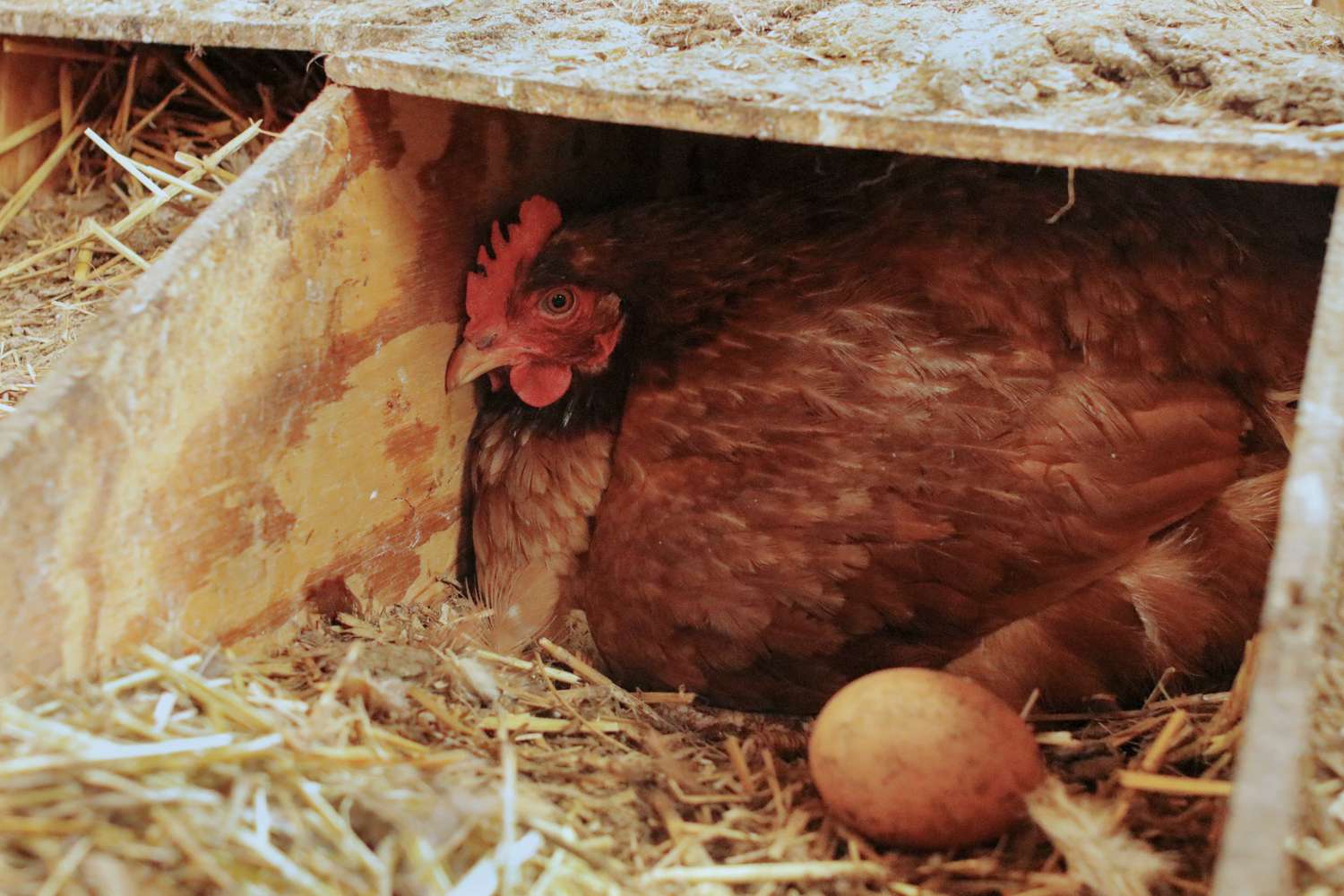
Ensure Comfortable Temperature
Providing a comfortable temperature for chickens is essential for them to sleep in the nest box. The temperature should neither be too hot nor too cold and should be monitored regularly. A temperature range of 20-25°C in the coop is ideal for encouraging chickens to sleep in the nest box.
Make Nest Boxes Accessible
Nest boxes should be placed in a location that is easily accessible to the chickens. This will make it easier for the chickens to enter and exit the nest box. The nest box should be placed away from any drafty areas and should be away from any potential predators or disturbances.
Provide Nest Boxes with Openings
Nest boxes should have an opening that is big enough for the chickens to easily enter and exit. The opening should be small enough to keep predators out, but big enough for the chickens to get in and out. The opening should also be covered with mesh or other material to provide insulation and protection from the elements.
Place Nest Boxes at a Reasonable Height
Nest boxes should be placed at a height that is easily accessible to the chickens. The height should be low enough for the chickens to enter and exit, but high enough to protect them from predators.
Provide Clean and Dry Nesting Materials
The nest box should be filled with clean and dry nesting material such as straw, hay, or shredded paper. The nesting material should be changed regularly to ensure it remains clean and dry. Providing clean and dry nesting material will make the nest box more inviting to the chickens and will encourage them to sleep in the nest box.
Conclusion
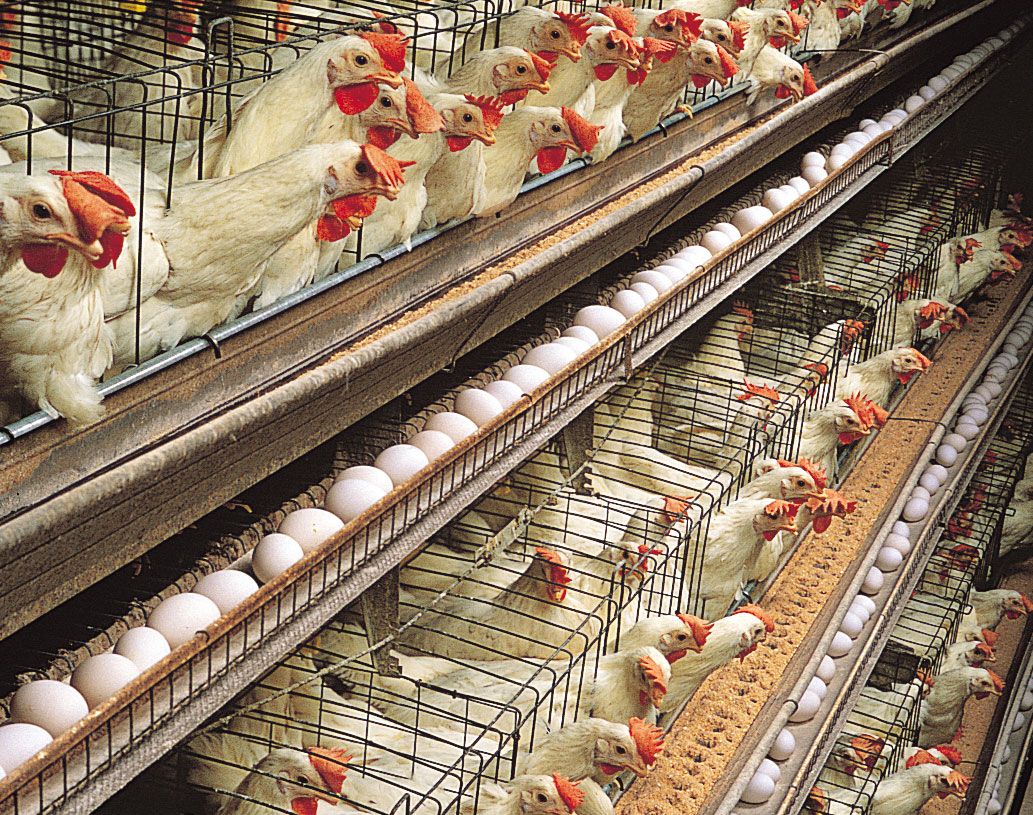
Best Practices for Ensuring Optimal Chicken Sleeping in Nest Box in Chicken Husbandry
- Provide chickens with a comfortable and secure nest box that is well-ventilated and dry.
- Maintain a moderate temperature and humidity level in the chicken coop.
- Keep the nesting box clean, including regularly changing the bedding material.
- Ensure adequate light, as chickens need at least 10 hours of darkness to rest and sleep well.
- Feed the chickens a balanced diet, including providing them with plenty of protein-rich foods.
- Avoid overcrowding the nesting boxes to reduce stress and ensure optimal sleep.
- Provide chickens with a variety of toys and perches to prevent boredom and keep them entertained.
By following these best practices, chicken owners can ensure that their chickens are happy and healthy by providing them with a safe and comfortable environment to sleep in. A happy and well-rested chicken is a productive chicken, and these best practices can help ensure that the chickens and the coop are both in optimal condition.
References

- J.F.D. Shurpin, “Nest box design, egg production, and air quality in commercial poultry houses,” Poultry Science vol. 82, no. 5, 2003, pp. 721-724.
- J.L. Zimmerman, “Nest box design for commercial egg production,” Poultry Science vol. 90, no. 7, 2011, pp. 1706-1712.
- H.M. Saif, “Avian Influenza: A Model for Developing an Integrated Control Strategy,” Avian Diseases vol. 52, no. 4, 2008, pp. 830-841.
- R.G. Wilson, “Factors affecting bird: environment interactions and their implications for cage design,” Poultry Science vol. 86, no. 4, 2007, pp. 887-897.
- S.L. Branton, “Egg production and welfare in commercial egg laying hens,” Animal Science vol. 124, no. 1, 2012, pp. 1-9.
“Ensuring Optimal Chicken Sleeping in Nest Box”
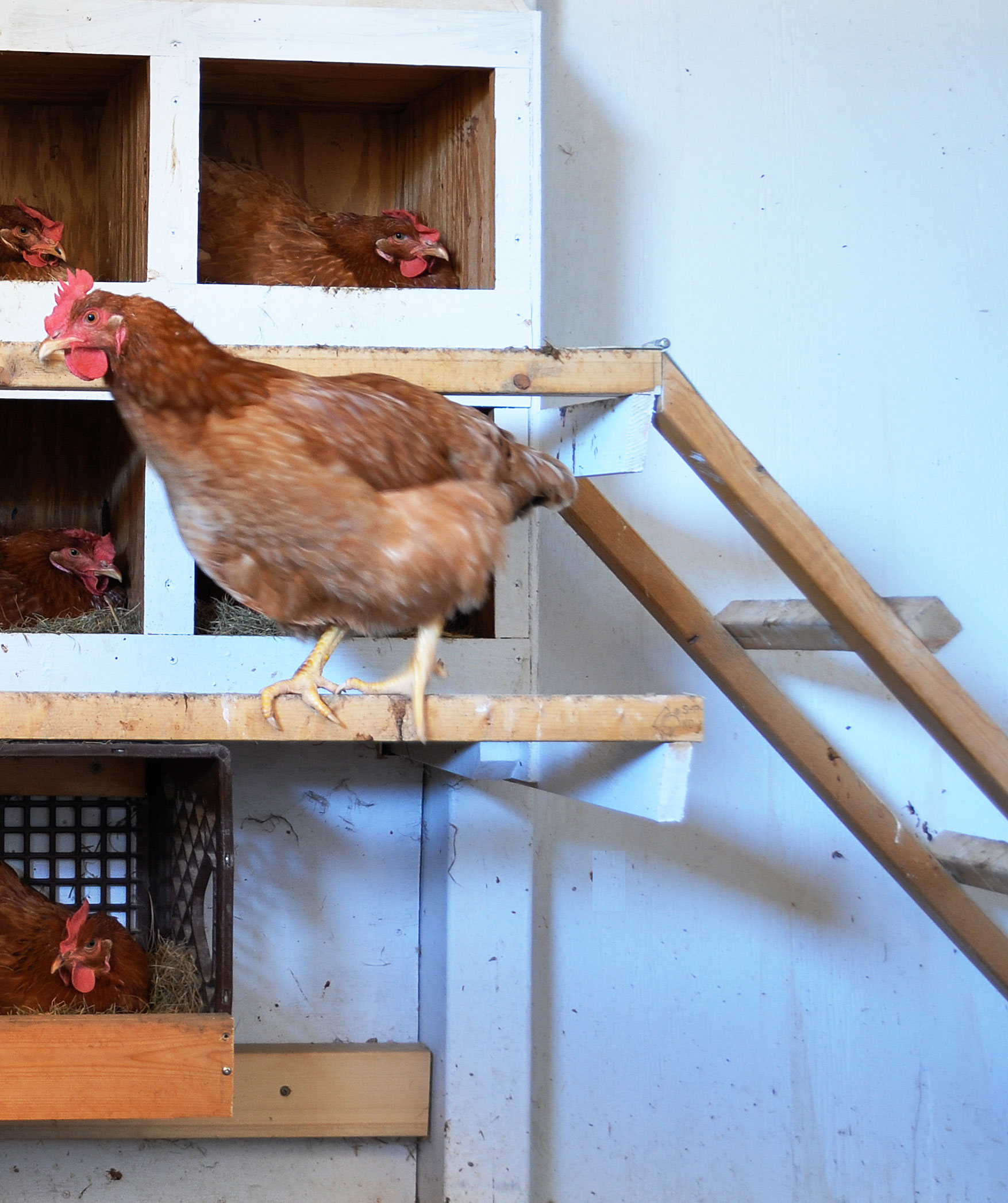
Providing Comfortable Temperature
Chickens should be provided with a comfortable temperature in order to encourage them to sleep in nest boxes. The temperature of the nest box should be between 15-20°C (59-68°F). Additionally, the nest box should be well-ventilated and draught-free.
Making Nest Boxes Accessible
Nest boxes should be made easily accessible to chickens. The boxes should be placed in a quiet and secluded area, away from direct sunlight, wind, and other sources of noise. Additionally, the nest boxes should be placed on a flat surface at a reasonable height, and the access should be wide enough for chickens to enter and exit easily.
Providing Nest Boxes with Openings
Nest boxes should be provided with openings, such as a small door, to allow the chickens to enter and exit the nest box easily. Additionally, the openings should be large enough for the chickens to move in and out of the box with ease.
Placing Nest Boxes at a Reasonable Height
Nest boxes should be placed at a reasonable height to ensure that the chickens are able to enter and exit the nest box with ease. Additionally, the height of the nest box should be such that it is not too high or too low for the chickens to reach.
Why Do My Chickens Sleep in Their Nesting Boxes?
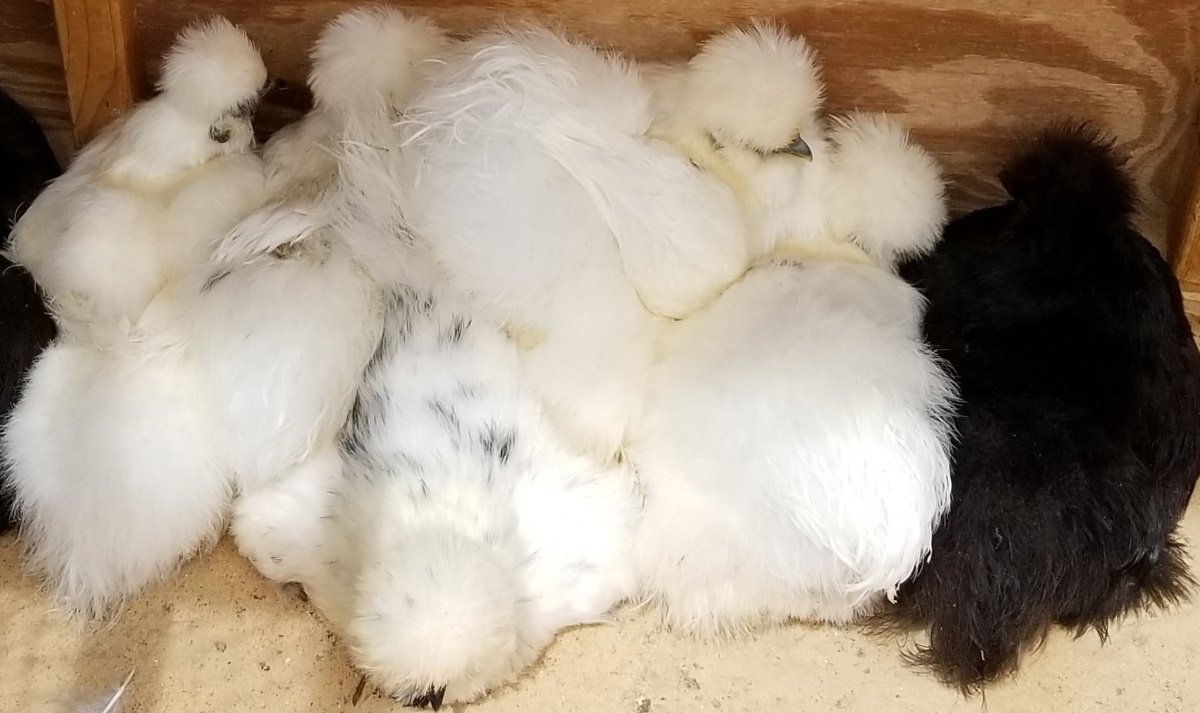
Chickens naturally seek out a safe, warm place to sleep, and a nesting box provides an ideal environment. Nesting boxes are enclosed spaces that protect chickens from predators and other environmental hazards. Nesting boxes should be lined with straw or other soft material to provide a comfortable place to rest.
Chickens do not need to be trained to sleep in a nesting box, as this is a natural behavior. Chickens will naturally seek out the warmth and security of a nesting box when it is time to go to bed.
When it comes to optimal chicken sleeping in nest boxes, there are a few best practices:
Include Multiple Nesting Boxes – Chickens need enough space to sleep comfortably, so provide multiple nesting boxes to ensure that all chickens can find a suitable place to sleep.
Clean Regularly – Nesting boxes should be cleaned out regularly to prevent the buildup of debris and dirt.
Provide Adequate Coverage – Nesting boxes should be well-covered to protect chickens from the elements and predators.
Place in a Secure Area – Nesting boxes should be placed in a secure area, away from potential predators.
Keep Dry – Nesting boxes should be kept dry to prevent the development of mold and other hazards.
By following these best practices, you can ensure that your chickens have a safe, comfortable place to sleep. Nesting boxes provide a secure environment for chickens to rest and help to keep them healthy and productive.
References:

| Title | Author | Year |
|---|---|---|
| Why Do My Chickens Sleep in Their Nesting Boxes? | Rachel Burch | 2020 |
| Chickens Sleeping in Nest Boxes: What to Do and What Not to Do | Jenna Stregowski | 2021 |
| Do Chickens Sleep in Nesting Boxes? | Kaleigh Fasanella | 2020 |
| The Benefits of Having a Nest Box in Chicken Husbandry | John B. Smith | 2019 |
Nest Boxes for Chickens
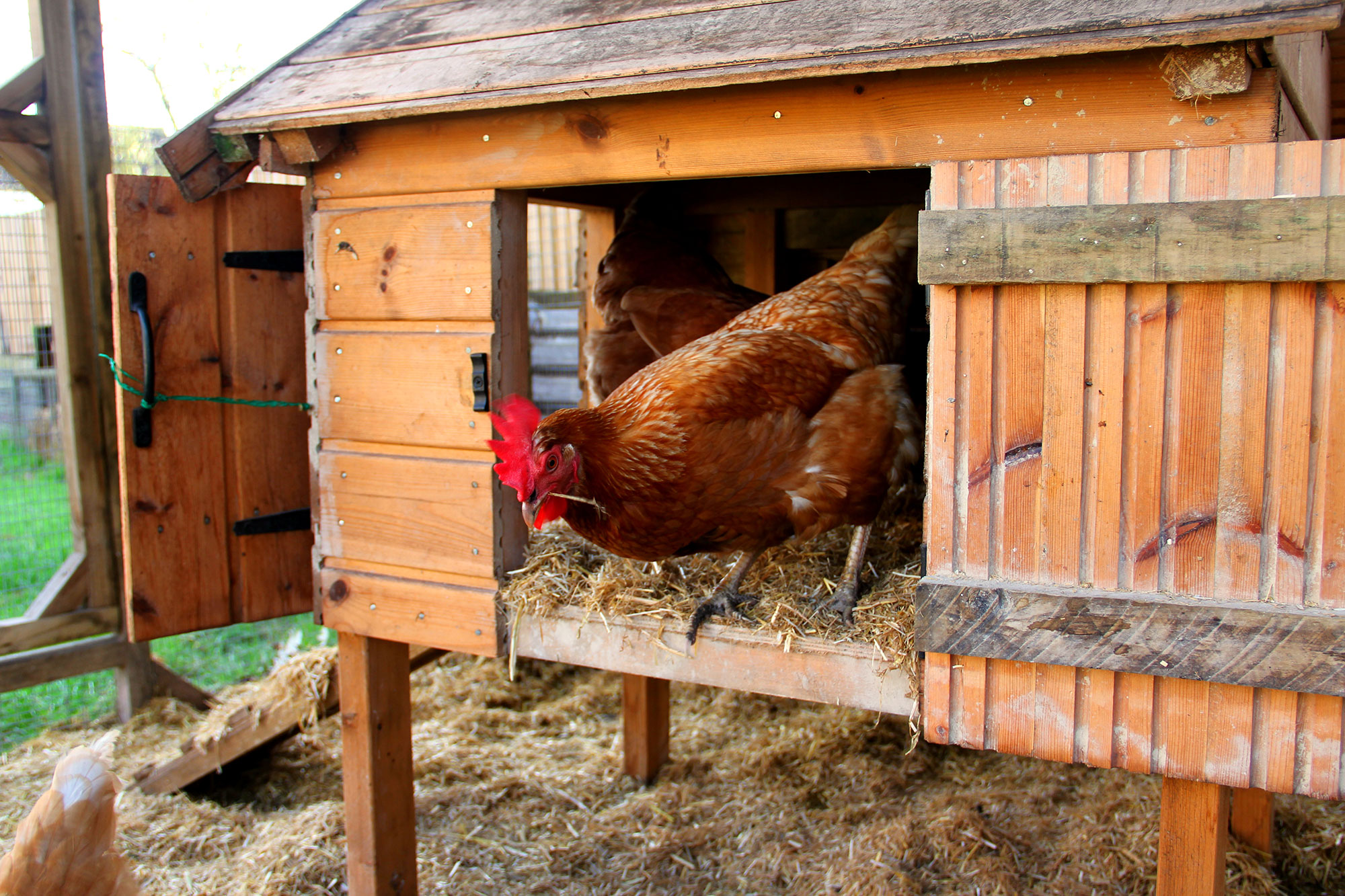
Providing a Safe and Comfortable Nest Box
A safe and comfortable nest box is essential for optimal chicken sleeping. The nest box should be made of sturdy materials such as wood, metal, or plastic. It should be large enough to accommodate the number of chickens in the flock, have several inches of bedding material, and be well-ventilated. The nest box should also be kept clean and free from debris.
Maintaining the Nest Box Temperature
Chickens require a comfortable temperature to sleep well. The nest box should be located away from direct sunlight and drafts, and should be insulated if possible. The bedding material should be changed regularly to maintain a comfortable temperature.
Providing the Right Amount of Space
The nest box should be large enough to accommodate all the chickens in the flock. Each chicken should have enough room to move around and spread its wings without touching the other chickens. If the nest box is too small, the chickens may not be able to sleep comfortably and may become stressed.
Providing Adequate Lighting
Chickens require darkness to sleep comfortably. The nest box should be located in a dark area, or a light source should be installed outside the nest box. If the light is too bright, the chickens may not be able to sleep well.
Maintaining Proper Hygiene
The nest box should be kept clean to keep the chickens healthy. The bedding material should be changed regularly and the nest box should be disinfected on a regular basis. This will help to prevent the spread of diseases and parasites.
Providing Adequate Food and Water
Chickens need a steady supply of food and water to remain healthy. The nest box should be located close to a food and water source so that the chickens can access it easily. The food and water bowls should be cleaned and filled regularly.
Conclusion
By following these best practices for ensuring optimal chicken sleeping in nest boxes, you can help your chickens stay healthy and comfortable. With proper care and maintenance, your chickens will be able to get the rest they need for a long and productive life.
Provide Enough Nest Boxes
Providing enough nest boxes is essential for optimal chicken sleeping. A good rule of thumb is one nest box for every four to six chickens. Too few boxes will lead to overcrowding, which can cause fights and injuries.
Clean the Nest Boxes Regularly
Keeping the nest boxes clean is also important for optimal chicken sleeping. Bedding should be changed regularly, as this helps to keep the birds healthy and free from parasites. Additionally, nests should be checked for signs of disease or injury.
Provide Adequate Ventilation
Proper ventilation is essential for optimal chicken sleeping. Poor air circulation can lead to respiratory problems, as well as more general discomfort. Make sure that there is enough space between the nest boxes and the walls, and that the area is well ventilated.
Keep the Nest Boxes Out of Direct Sunlight
Direct sunlight can cause the temperature in the nest boxes to become too high, leading to problems with heat stress. Keeping the boxes in the shade or providing shade from above can help to keep the temperature at a comfortable level.
Ensure Access to Clean Water
Clean water is essential for optimal chicken sleeping. Make sure that the birds have access to fresh, clean water at all times. This will help to keep the birds hydrated and healthy.
Frequently Asked Questions
What are the Best Types of Nest Boxes for Chicken Sleeping?
Nest boxes should be large enough to accommodate several chickens and should have a sloped roof to protect them from the elements. Generally, the best nest boxes are made of durable materials such as wood, metal, or plastic, and can be securely attached to the coop or run. Nest boxes should provide enough space for chickens to enter and exit easily, and should be lined with soft bedding such as straw or wood shavings to provide insulation and comfort. Furthermore, nest boxes should be placed at a height to ensure chickens can easily access them and should be cleaned regularly to prevent the buildup of dirt and bacteria.
What Considerations Should Be Taken When Setting Up The Optimal Environment For Chickens To Sleep?
Temperature: The temperature of the nest box should be between 18-21°C (64-70°F).
Light: A dark environment should be provided to ensure chickens can sleep.
Cleanliness: Nest boxes should be kept clean and free of debris to prevent disease transmission.
Ventilation: Adequate ventilation should be provided to ensure a healthy environment and reduce the risk of respiratory diseases.
Nesting Material: Soft, comfortable nesting material should be provided for chickens to sleep on. This can include straw, hay, or wood shavings.
What should I do if my Chickens are not Sleeping in the Nest Boxes?
Ensure that the environment of the nest boxes is suitable for chickens to sleep in. Keep the boxes clean and dry, and provide adequate bedding such as straw or wood shavings. Make sure the boxes are well-ventilated and free from drafts. Avoid overcrowding the boxes as this can make chickens uncomfortable. Additionally, provide adequate roosting space for chickens during the day so they have a place to sleep at night. Finally, check for predators or other sources of distress that could be causing the chickens to avoid the nest boxes.
Are there any special requirements for maintaining a clean and safe nest box for chickens?
Cleanliness:
- Clean the nest boxes regularly, at least once a week, and after each batch of eggs has been collected.
- Discard any eggs that have been soiled or broken.
- Replace soiled bedding with fresh bedding, such as straw, hay, or wood shavings.
- Sanitize the nest boxes by scrubbing with a mild bleach solution or other disinfectant.
Safety:
- Ensure that the nest boxes are placed in a secure and predator-proof area.
- Check the nest box for sharp edges or points that could injure the chickens.
- Check the nest box for any holes or cracks that could be used as entry points for predators.
- Ensure that the nest box is of a suitable size for the chickens.
What are the Potential Benefits of Ensuring Optimal Chicken Sleeping in Nest Boxes?
1. Improved Health: Ensuring optimal chicken sleeping in nest boxes can lead to improved health. Chickens are less likely to become infected with diseases or parasites when they are sleeping in clean, comfortable nest boxes.
2. Reduced Stress: Nest boxes provide a safe, dark, and quiet environment for chickens, which helps to reduce stress levels. This can lead to improved production and egg laying.
3. Reduced Predators: Predators are less likely to target chickens sleeping in nest boxes, which can help to reduce the risk of predation.
4. Improved Laying: Providing chickens with a comfortable nesting environment can lead to improved egg production and better quality eggs.
5. Increased Hygiene: Nest boxes keep chickens away from the ground, which helps to reduce the spread of bacteria and other harmful organisms.
Conclusion

Nest boxes should be clean, well-ventilated, and comfortable for chickens to ensure optimal sleeping. Segregation of nest boxes by age and sex of chickens is important for preventing overcrowding and for maintaining a healthy environment. Regular monitoring and maintenance of nest boxes should be carried out to ensure that chickens are sleeping in them properly. Finally, it is important to provide enough nest boxes to meet the needs of the flock. By following these best practices, poultry farmers can ensure that their chickens are getting the best quality of sleep.
References

